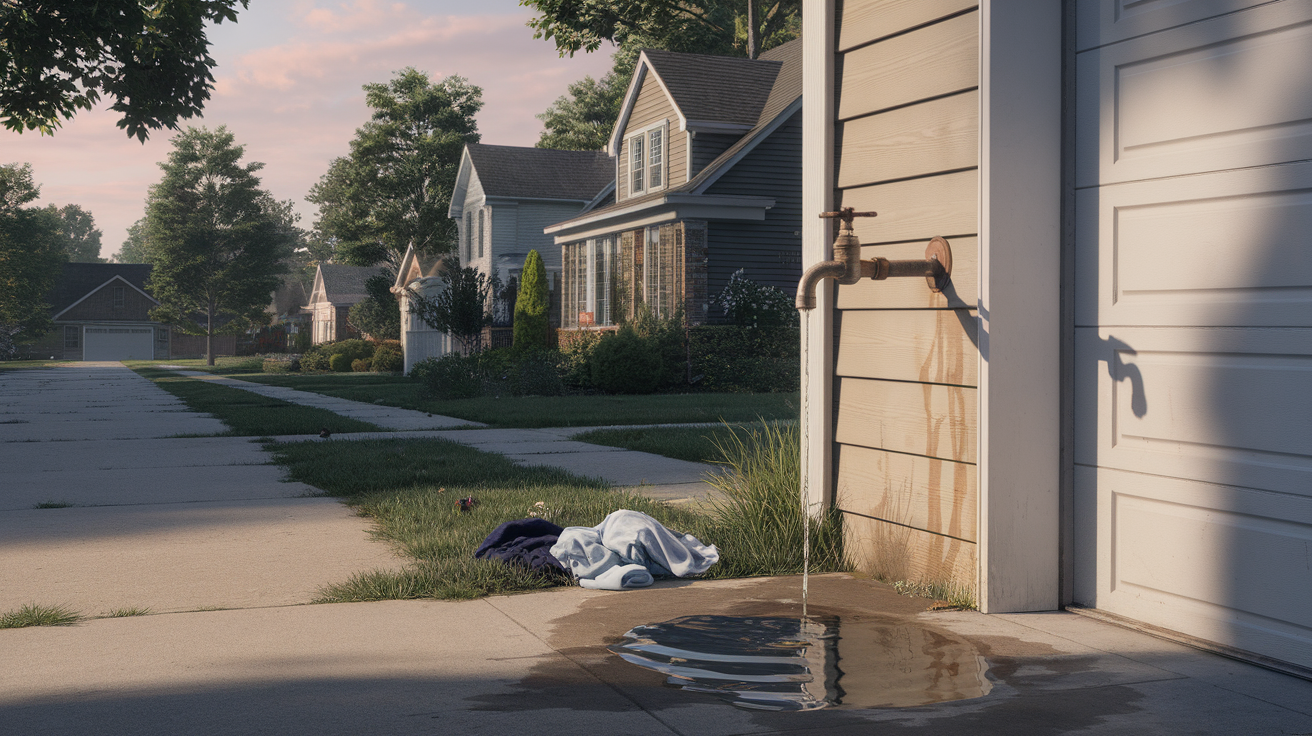In a quiet corner of Dallas, Texas, a simple outdoor water spigot became the center of a heated debate. A couple new to the neighborhood spotted a man using their hose to wash up on a scorching hot day.
At first, they felt sorry for him, he seemed homeless and was just trying to stay clean. But when he came back and things got more uncomfortable, it raised big questions about how far kindness should go.
The story unfolded in The Cedars area, a spot in North Texas where city life meets everyday struggles. On August 19, the couple's security camera caught the man in action.
He stripped down to his shorts, washed his clothes, and even shaved. The wife checked the alert and thought, "Whoa, that's surprising." But with the heat blazing, they decided to let it slide.
"He's trying to stay healthy," she said. "My heart hurts for people in that spot." They figured it was a one-time thing and planned to keep an eye out.
Just four days later, on August 23, he returned. This time, the camera showed him moving a trash can and looking right at it. He stepped away briefly, then came back and took off all his clothes.
Across the street, a little girl was chatting with the couple from their balcony. That's when the husband stepped in.
"I get your situation," he told the man, "but there are kids around here. Please don't do this." The man said sorry and left, mumbling something odd about the devil.
Shaken, the couple shared the video online on apps like Ring and Nextdoor, hoping for tips. Instead, they got backlash.
Some folks criticized them for not being more helpful, pointing to the hot weather and the man's tough life. Others praised them for speaking up to protect their space and the neighborhood kids.
This isn't just a one-off tale—it's part of a bigger issue in cities like Dallas, where homelessness is on the rise.
Experts say about 3,000 people live without shelter in the area, facing daily battles for basics like food and cleanliness.
One man experiencing homelessness, who shared his story with reporters, explained how hard it is.
He uses baby wipes or finds hidden spots to stay fresh, but admits sneaking water isn't right. "You have to be humble," he said, "but asking for help isn't easy."
Bob Sweeney, who runs Dallas Life, a trusted shelter helping folks get back on their feet, weighs in on the debate.
He warns that quick fixes, like letting someone use your water, might feel good but don't solve the real problems. "It doesn't teach how to stay clean and earn your way," he says.
Instead, he pushes for programs that offer long-term support, like job training and housing.
Groups like this shelter rely on community donations and volunteers to make a real difference, building trust through proven results.
As Texas deals with growing homeless numbers, up 12% last year according to state reports, these moments highlight the tug-of-war between heart and home.
Cities are adding more shelters and outreach, but personal run-ins like this test everyone's limits. The couple now locks their spigot, hoping for better ways to help without the drama.
The lingering question: In a world where some have so little, should we open our doors (or spigots) wider to show compassion, even if it feels risky, or draw clear lines to keep our families safe?
As debates rage online and in neighborhoods, finding a middle ground could be the key to kinder communities.

